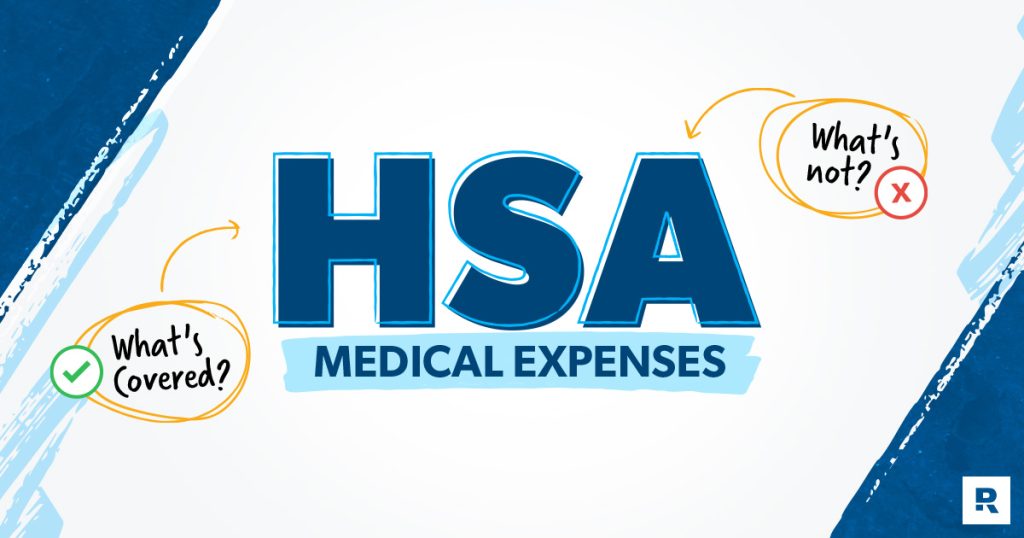Pop quiz! Know what reading glasses, thermometers, a midwife and an ambulance all have in common? If you guessed that they’re all qualified medical expenses (QMEs) through a health savings account (HSA), then you’re a winner!
That’s right, everything from hearing aids to your visit to the chiropractor can be covered by the money you contribute to your HSA. And you might be surprised just how many things are considered an HSA eligible expense. So, let’s check out what qualifies, what might qualify and what definitely doesn’t so you can put your HSA funds to use wisely.
How Does the Federal Coronavirus Stimulus Package Affect HSAs?
The federal government approved the CARES Act, a $2.2 trillion stimulus package, in an attempt to keep the lid on the U.S. economy. Not only will the government start sending coronavirus relief checks to qualifying folks, they’re also making some shifts around health insurance to release that pressure valve even more. If you’re enrolled in an HSA, here’s what you need to know:
1. You have until July 15, 2020 to make 2019 HSA contributions.
Because the IRS has extended the federal tax-filing date from April 15, 2020, to July 15, they’ve also extended the 2019 HSA contribution deadline. That means you’ve got an extra three months to add money to your HSA to cover 2019 qualified medical expenses.
2. The list of qualifying medical expenses just got bigger.
There’s no doubt that coronavirus has got us all thinking more about our health and the things we need to take care of it. With the CARES Act in place, items that were once considered non-qualifying medical expenses are now eligible expenses. That’s good news!
Now over-the-counter drugs (Hello, allergy medication! Goodbye, seasonal sneezing!) and menstrual products are considered qualified medical expenses, and you can use your HSA bucks to pay for them.
3. Telemedicine is covered for 2020.
Right now, you can see your doctor from the safety and comfort of your home and use your tax-free HSA dollars to pay for the appointment. This option isn’t permanent though. It ends December 31, 2020.
Am I Eligible for an HSA?
Not everyone can open an HSA. But with high-deductible health plans (HDHPs) gaining in popularity, more and more people are taking advantage of HSAs. These triple tax-advantaged savings accounts are designed specifically to cover medical expenses.
But in order to open an HSA, you need to meet a few requirements.
HSA Eligibility Requirements
1. You’re enrolled in a high-deductible health plan.
In 2020, that looks like having a health insurance plan with a minimum deductible of $1,400 for single coverage or $2,800 for family coverage. The maximum out-of-pocket expense is $6,900 for individuals and $13,800 for families.
2. You’re not enrolled in Medicare.
3. You’re 18 years or older and no one can claim you as a dependent on their tax return.
What Are Qualified Medical Expenses?
An HSA allows you to save for current and future medical expenses. Now you can’t just dump a ton of money into an HSA. There are contribution limits. In 2020, a person with single coverage can contribute up to $3,550 per year or $7,100 for family coverage.
And those contributions come with some pretty great tax benefits too. Your contributions go in tax-free, grow tax-free and come out tax-free when you use them for qualified medical expenses. But what’s considered a qualified medical expense?
It’s a long list and always subject to change by the IRS. If you’re on the fence about an expense, make sure to check with them for the most up-to-date list.
You can use your HSA funds to pay for medical, vision and prescription expenses. You can even use your HSA for dental expenses!
Here’s a brief list with some of the most common (and more surprising!) HSA eligible expenses. Remember, this list isn’t comprehensive and can change.
Medical
- Hearing aids
- Obstetrical expenses
- Sleep deprivation treatment
- Acupuncture
- Psychiatric care
Vision
- Eye exams, eyeglasses, equipment and materials
- Reading and safety glasses
- Contact lenses, materials and equipment
- Vision correction procedures; laser eye surgery including Lasik
- Braille books and magazines
Dental
- Artificial teeth
- Dentures and denture adhesives
- Guards to prevent teeth grinding
- Orthodontia
Other
- Prescription medications
- Co-insurance amounts, co-payments and deductibles
- Shipping and handling fees for medical products
- Taxes on medical services and products
- Medical records charges
What Are Non-Qualifying Medical Expenses?
Even though a lot of medical expenses are HSA eligible, there are still a bunch of things that aren’t. Here’s a look at just a few of the things you cannot use your HSA funds for:
- Cosmetic procedures (unless it repairs the effects of a disease—like breast reconstruction after a mastectomy)
- Babysitting and childcare
- Prescription drug and vision discount programs
- Teeth whitening, dental floss, toothpaste and toothbrushes
- Shampoos and soaps
- Diet foods
- Maternity clothes
- Missed appointment fees or late fees for late payment of medical bills
What Are Potentially Qualifying Medical Expenses?
We can’t leave out the grey area! There are some things that may qualify as an HSA eligible expense as long as you meet other specific requirements. These are some of the expenses you’ll want to doublecheck before you use your HSA:
- Acne treatment
- Allergy medication
- Fertility treatments, including IVF
- Over-the-counter (OTC) drugs
- COBRA and HMO premiums
- Home health care and long-term care services
- Nicotine gum or patches
- Childbirth classes
- Infant formula
- Gastric bypass surgery
How Do I Spend My HSA Funds?
Once you have your HSA set up, you’ll receive what looks like a debit card in the mail. And you can use that card exactly like you would a debit card for qualified medical expenses.
Say you’re checking out at the pharmacy or your doctor’s office, when it’s time to pay, reach for your HSA card instead of cash or your debit card. (Don’t forget to hang onto those receipts! An income tax return is generally considered “open” for three years after filing. If you ever get audited, you’ll want to have your paper trail ready.)
But say you left your card at home or just forgot to use it. No big deal. You can reimburse yourself from your HSA later. Check with your HSA provider for their specific instructions on how to do that.
Remember, you can only use your HSA for qualified medical expenses. If you use your funds for non-qualifying expenses, medical or otherwise, you’ll get dinged with a penalty. If you’re unsure if something qualifies or not, pay cash or use your debit card. You can always reimburse yourself later when you’re sure it’s an eligible expense.
Setting Up an HSA
If you have an HDHP, setting up an HSA is really a no-brainer. There are just too many benefits to take advantage of. And HSAs are super easy to set up. If you’re ready, don’t wait!
If you don’t have an HDHP though, you can get one! We recommend connecting with our RamseyTrusted friends at Health Trust Financial. Their indpendent insurance experts can run numbers and help you figure out if an HDHP is the right fit for you. And if it is, they’ll shop around to get you the best plan at the best price so you can cash in on HSA tax benefits and direct some of your money straight to medical expenses.
Read the full article here









